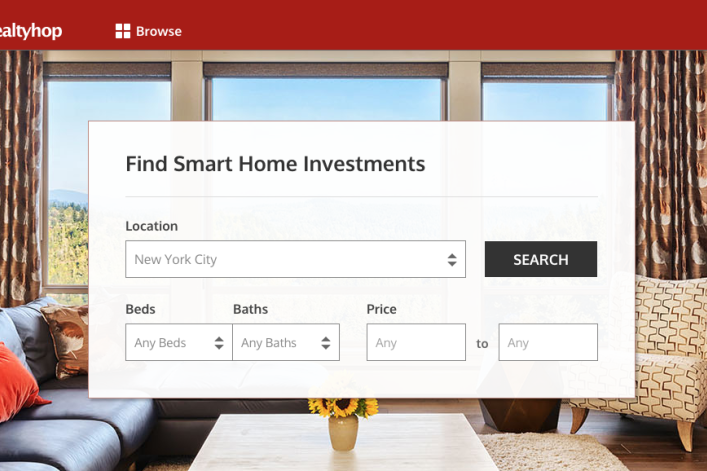New data tool: search for apartments based on investment potential

Everyone knows at least in the abstract sense that New York real estate is a solid investment, but what if you could specifically search for apartments based on their investment potential? Such is the thinking behind RealtyHop, a new sales listings site launched yesterday by the team behind rentals database RentHop (a Brick advertiser).
It works like this: in addition to the normal data you'd find attached to an apartment listing, RealtyHop will also estimate its investment potential via the capitalization rate. The cap rate is calculated based on a formula: Take the estimated annual rental income and subtract your annual expenses and common charges to determine your potential net income. Divide this number by your purchase price, and there you have it—cap rate.
Here's an example of a 1-bedroom, 1-bath condo in Boerum Hill with a 6.39 percent cap rate based on projected rental income of $3,375/month:


It's a handy way of sussing out an apartment's value in the short and long term, though we wouldn't recommend going right out and buying an apartment based on the cap rate alone. For starters, the projected rental income for these listings is a ballpark estimate based on sister site RentHop's years of rental data (very little concrete data exists for rental prices in co-op and condo buildings). "Of course, standard disclaimer, these cap rates are assuming ideal conditions," adds RealtyHop co-founder Lee Lin. "One-hundred percent occupancy, rents at or above market prices for the area, and no cost for repairs and advertising. We also don't factor in closing costs or sublet fees paid to the board." Another caveat: Many of the apartments that seem to be the best value are co-ops, which tend to have tight restrictions on subletting, if they allow it at all.
"It's purely theoretical and the vast majority of people buying co-ops and condos aren't looking for them as an income stream, so the concept of a cap rate doesn't really apply," says Barbara Denham, an independent real estate economist. In this scenario, the term "cap rate" is "kind of irrelevant" because you're never seeing income. She adds that using cap rates to assess co-op apartments is tricky, given that most can't be rented out, and if they are, can only be sublet for a few years at a time. That said, "if you're looking into a condo purchase with the potential to sublet or as an income-generating vehicle, then it applies."
"Our site is for buyers with an investment mindset, the value investors if you will," Lin adds. "The best possible situation is someone who wants to buy a place to live in today, but is interested in becoming a landlord a few years down the line." Co-op buyers with this in mind should identify buildings with a flexible enough sublet policy. "A common rule is after living there for 2 years, the owner is allowed to sublet for up to 3 years," says Lin. As always, do your homework before you sign on the dotted line.
For the time being, the site is free of charge, though they're likely to start charging in the future, according to a press release. If you already own your place, no time like the present to poke around and see how much you might get if you decide to sublet.
Related:
How to spot a good NYC investment property






















